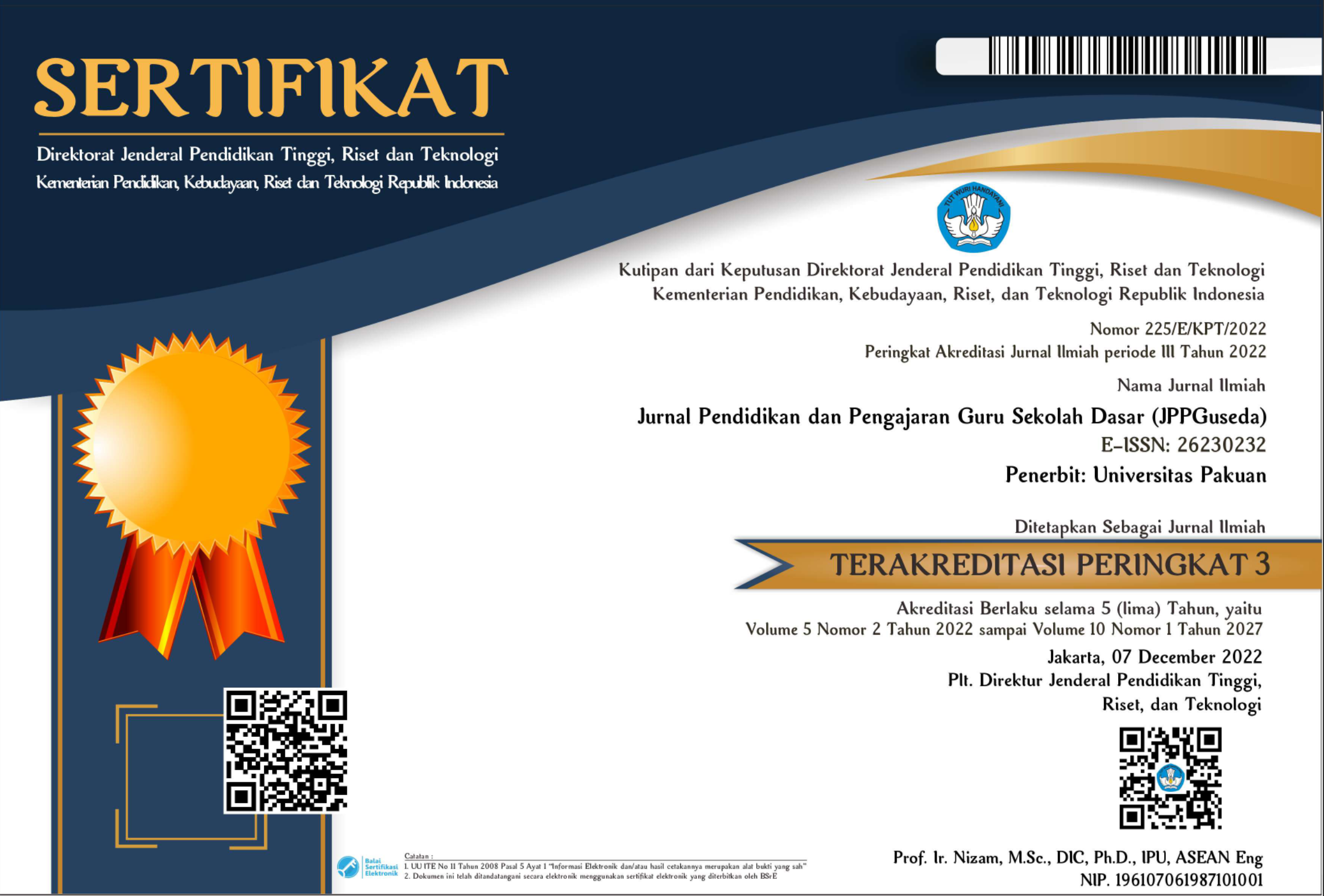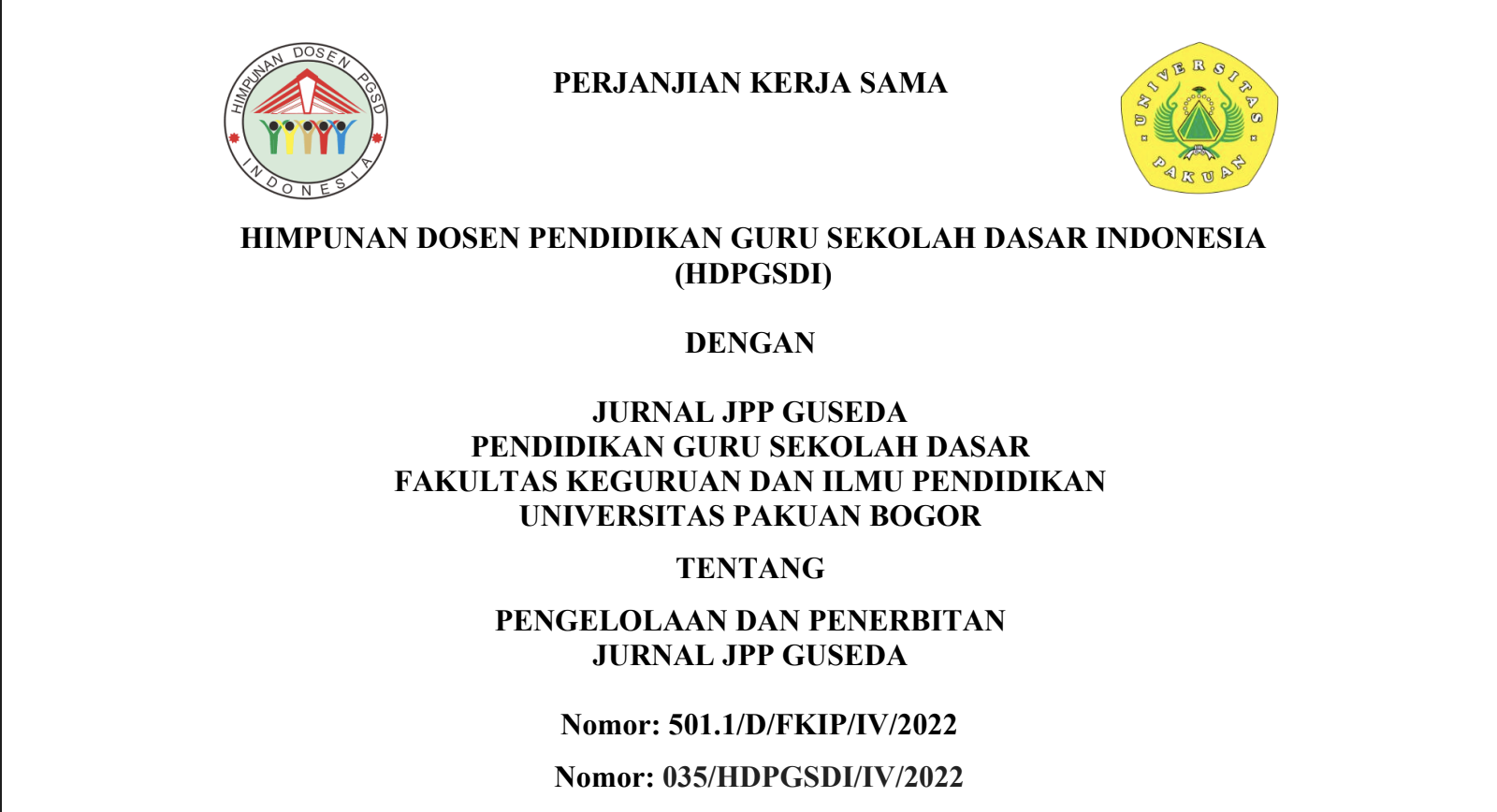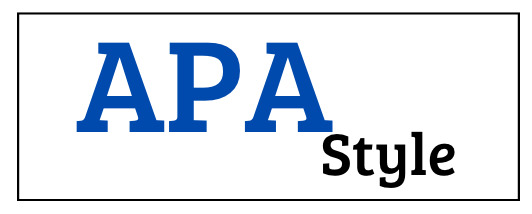The Effect Of Application Of Problem Based Learning Model On Critical Thinking Ability Students In Learning Ips
Abstract
The purpose of this study was to determine the effect of applying the problem based learning model on students' critical thinking skills in social studies learning, this study used quantitative research with a pre-experimental type, the design used was the One group pretest posttest design. The population in this study were all Cluster I Kec. Mangala for the 2022/2023 school year. The selection of the sample in this study was carried out using a purposive sampling technique. The data that has been collected will be processed and analyzed using two types of analysis, namely descriptive statistical data analysis and inferential statistical data analysis. To assist in calculating the analysis of descriptive statistical data and inferential statistics, the SPSS application program version 25.0 is used. Based on the results of the study that in the learning process by applying the problem based learning model the teacher's ability to manage learning for 6 meetings was carried out very well, descriptively the application of the problem based learning model affected students' critical thinking skills in social studies subjects and in the learning process with applying the problem-based learning model, the teacher's ability to manage learning is carried out very well. with the results of the study using the one sample test obtained values with tcount = 18.159 > ttable = 1.99 then H_0:μ_1≤60 is rejected and H_1:μ_1 >60 is accepted in other words for a 95% confidence level average score of participants' critical thinking skills students after applying the problem-based learning model learning is more than 60 so it can be concluded that the application of problem-based learning model learning in meeting the criteria of completeness results in critical thinking skills that is more than 60.
Keywords
References
Amalia, A. M. (2020). Pengaruh Model Problem Based Learning Terhadap Hasil Belajar Peserta didik pada Materi Sistem Imun di SMA Negeri 6 Kendari. Kulidewa, 1.1, 24–28.
Ariyani, B., & Kristin, F. (2021). (2021). Model Pembelajaran Problem Based learning untuk Meningkatkan Hasil Belajar IPS Peserta didik SD. Jurnal Imiah Pendidikan Dan Pembelajaran, 5(3), 353.
Arsyad, A. A., Kalsum, U., & Masriani, M. (2022). Validitas dan Kepraktisan Problem Based Learning Berorientasi Pendekatan Metakognitif. Phydagogic: Jurnal Fisika Dan Pembelajarannya, 4(2), 59–64.
Cintia, N. I., Kristin, F., & Anugrahaeni, I. (2018). Penerapan Model Pembelajaran Discovery Learning. Perspektif Ilmu Pendidikan, 32(1), 69–77.
Dimyati, M. (2015). Belajar Dan Pembelajaran. Rineka Cipta.
Djonomiarjo, T. (2020). Pengaruh Model Problem Based learning Terhadap Hasil Belajar. Aksara: Jurnal Ilmu Pendidikan Nonformal, 5.(1), 39–46.
Fitriyah, A., & Ramadani, S. D. (2021). Pengaruh Pembelajaran Steam Berbasis Pjbl ( Project-Based Learning ) Terhadap Keterampilan. Journal Of Chemistry And Education (JCAE), X(1), 209–226.
Hakim, Z. R., Taufik, M., & Atharoh, M. (2018). Penerapan Model Pembelajaran Vct (Value Clarification Technique) Terhadap Kemampuan Pemecahan Masalah Siswa Pada Mata Pelajaran Ips Di Sekolah Dasar Negeri Cimanis 2 Sobang Pandeglang. JPPGuseda | Jurnal Pendidikan & Pengajaran Guru Sekolah Dasar, 1(01), 31–38. https://doi.org/10.33751/jppguseda.v1i01.869
Hamka, Setyosari, P., Cahyono, B. Y., & Sulton. (2021). LEARNING CHARACTER BASE LEARNERS IN INDONESIA (Series Two: Research on English Phonology Learning Models). Review of International Geographical Education Online, 11(3), 864–874. https://doi.org/10.33403/rigeo.800534
Hanif, M. (2019). Jurnal Pendidikan | Jurnal Pendidikan. Jurnal Pendidikan IPS, 4(2), 53–60.
Hanifah, N., & Sunaengsih, C. (2021). Indonesian Journal of Primary Education. © 2021-Indonesian Journal of Primary Education, 5(1), 1–12.
Hendriana, E. C. (2018). Pengaruh Model Pembelajaran Problem Based learning dan Gaya Belajar Auditorial terhadap Hasil Belajar IPS di Sekolah Dasar. JPDI (Jurnal Pendidikan Dasar Indonesia), 3(1), 1–8.
Hilmi, M. Z. (2017). Implementasi Pendidikan IPS Dalam Pembelajaran IPS Di Sekolah. Biarti Yesi, 3(2), 164–172.
Ichsan, Suhaimi, Amalia, K. N., Santosa, T. A., & Yulianti, S. (2022). Pengaruh Model Pembelajaran Problem Based Learning Berbaisis TPACK Terhadap Ketrampilan Literasi Sains Dalam Pembelajaran IPA Siswa Tingkat SD Sampai SMA: Sebuah Meta-Analisis. Jurnal Pendidikan Dan Konseling, 4(5), 2173–2181.
Ilham, M. J., Hasanah, M., & Pratiwi, Y. (2016). Pengaruh Model Pembelajaran Kooperatif Tipe Cooperative Integrated Reading And Composition (CIRC) Bermuatan Nilai Karakter terhadap Kemampuan Menulis Cerpen Siswa Kelas VII. Jurnal Pendidikan Humaniora, 4(3), 121–131.
Izzah, S. I. N., & Sukmawati, W. (2022). Pengaruh Model Problem Based learning Terhadap Motivasi Belajar Peserta Didik pada Pembelajaran IPS. Ideas: Jurnal Pendidikan, Sosial, Dan Budaya, 8(3), 765-772.
Kori Sundari, N. N. (2021). Social Inquiry Method As a Solution To Improve. Pedagogik, IX(2), 42–52.
Muhajir, S. (2021). Peran Pendidik dalam Menanamkan Nilai-Nilai Kejujuran melalui Pembelajaran Pendidikan Kewarganegaraan (Pkn) pada Peserta Didik di Sekolah Dasar. Jurnal Pendidikan Dan Pengajaran Guru Sekolah Dasar (JPPGuseda), Volume 04, 259–262.
Murdani, M. H., Sukardi, S., & Handayani, N. (2022). Pengaruh Model Problem Based Learning dan Motivasi Terhadap Hasil Belajar Siswa. Jurnal Ilmiah Profesi Pendidikan, 7(3c), 1745–1753. https://doi.org/10.29303/jipp.v7i3c.775
N.K. Mardani, N.B. Atmadja, & I. N. S. (2021). Pengaruh Model Pembelajaran Problem Based Learning (PBL) Terhadap Motivasi dan Hasil Belajar IPS. Jurnal Pendidikan IPS Indonesia, 5(1), 55–65.
Nazir, M. (2019). Metode Penelitian. Penerbit Ghalia Indonesia.
Novianti, A., Bentri, A., & Zikri, A. (2020). Pengaruh Penerapan Model Problem Based learning (PBL) Terhadap Aktivitas Dan Hasil Belajar Peserta didik Pada Pembelajaran Tematik Terpadu Di Sekolah Dasar. Jurnal Basicedu, 4(1), 194–202.
Novita, L., Sutisna, E., & Rabbani, K. R. (2020). Penggunaan Media Pembelajaran Animasi Terhadap Hasil Belajar Subtema Manusia Dan Lingkungan. JIKAP PGSD: Jurnal Ilmiah Ilmu Kependidikan, 4(3), 293-302.
Nurjanah, S. (2020). Pengaruh Model Pembelajaran Problem BLBased Learning (PBL) Terhadap Motivasi Belajar IPS Terpadu Pada Materi Kegiatan Ekonomi. IAIN Ponorogo).
Prastiyono, H., Utaya, S., Sumarmi, S., Astina, I. K., Amin, S., & Aliman, M. (2021). Development of E-Learning, Mobile Apps, Character Building, and Outdoor Study (EMCO Learning Model) to Improve Geography Outcomes in the 21st Century. International Journal of Interactive Mobile Technologies, 15(7), 107–122. https://www.scopus.com/inward/record.uri?eid=2-s2.0-85104272567&partnerID=40&md5=99bbe078a050f11eb19361ec43c1d199
Sakti, I., Nirwana, N., & Swistoro, E. (2021). Penerapan Model Project Based Learning Untuk Meningkatkan Literasi Sains Mahasiswa Pendidikan Ipa. Jurnal Kumparan Fisika, 4(1), 35–42. https://doi.org/10.33369/jkf.4.1.35-42
Salmia, Sudarmin, A. M. Y. (2022). The Efforts of Islamic Religious Teachers in Improvin the Ability to Read the Al-Qur’an Writing in Class IV Students Inprimary School. International Journal of Social Science, Vol.1 No.5.
Sinabang, Y. (2020). Pengaruh Penerapan Model Pembelajaran Problem Based Learning (PBL) Terhadap Kemampuan Berpikir Tingkat Tinggi (Hots) Ditinjau Dari Motivasi Belajar Peserta Didik. JMPIS, 1(1).
Sudarmin, Abdul Azis Muslimin, R. B. (2020). Analisis Implementasi Program Sekolah Model dalam Penguatan Nilai Sosial pada Siswa di Sekolah Dasar. Indonesian Journal of Primary Education, Vol. 4, No.
Sukmawati, Salmia, S. (2023). Population, Sample (Quantitative) and Selection of Participants/Key Informants (Qualitative). Edumaspul - Jurnal Pendidikan, Vol. 7 – N(6), 131–140. https://doi.org/https://doi.org/10.33487/edumaspul.v7i1.5259
Sukmawati, Sudarmin, S. (2023). Development of Quality Instrument and Data Collection. Jurnal Pendidikan Dan Pengajaran Guru Sekolah Dasar, 6(1), 119–124.
Thomson, C., Bennett, D., Johnston, M., & Mason, B. (2015). Why the where matters: A sense of place imperative for teaching better indigenous affairs reporting. Pacific Journalism Review, 21(2), 141–161. https://doi.org/10.24135/pjr.v21i2.125
Turner, G. (2015). Culture, politics and the cultural industries: Reviving a critical agenda. In The Routledge Companion to the Cultural Industries (pp. 535–544). Taylor and Francis. https://doi.org/10.4324/9781315725437-58
Ulfa, Z., Irwandi, I., Syukri, M., Munawir, A., & Halim, A. (2021). Improving ISLE-based STEM learning outcomes for building the 21st century skills and characters through a lesson study: A case study on Torque and Moment of Inertia. 2021, vol. 1882, no. 1, doi: 10.1088/1742-6596/1882/1/012153
Wardani, W. (2019). Pengaruh kecerdasan adversitas dan kecerdasan emosional melalui model inkuiri sosial terhadap keterampilan sosial siswa. Jurnal Teori Dan Praksis Pembelajaran IPS, 4(2), 66–73. https://doi.org/10.17977/um022v4i22019p066
Wau, M. P. (2017). Pengaruh Model Problem Based Learning Terhadap Hasil Belajar Ips Pada Siswa Kelas IV SDI Bajawa Kecamatan Bajawa Kabupaten Ngada. Journal of Education Technology, 1(4), 239. https://doi.org/10.23887/jet.v1i4.12860
DOI: 10.55215/jppguseda.v7i2.8585
 Abstract views : 243
Abstract views : 243
Refbacks
- There are currently no refbacks.
Copyright (c) 2024 Jurnal Pendidikan dan Pengajaran Guru Sekolah Dasar (JPPGuseda)

This work is licensed under a Creative Commons Attribution-NonCommercial 4.0 International License.




















